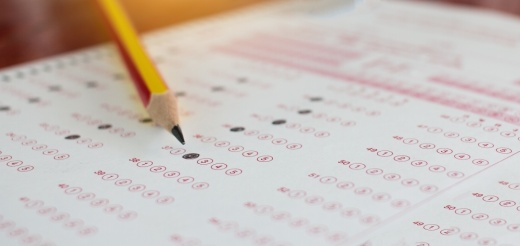According to the Texas Education Agency, early results show that 40% of eighth-graders statewide did not meet expectations in math in spring 2021, compared to 19% in spring 2019. For fifth-graders, 31% did not meet expectations in math for spring 2021, compared to 17% in spring 2019.
In Grapevine-Colleyville ISD, the number of eighth-graders who did not meet math expectations jumped from 8% in spring 2019 to 17% in spring 2021. Eighth-grade reading also saw an uptick, with 14% not meeting expectations in spring 2021, in comparison to 9% in spring 2019.
A similar trend is also observed at the fifth-grade level. For spring 2021 math, 18% of students did not meet expectations, compared to 8% for spring 2019. An exception to the statewide trend is Carroll ISD, where the percentage of students not meeting expectations in math and reading remained relatively stable—and low—between 2019 and 2021. Eighth-graders who did not meet expectations in reading went up a percentage point—from 3% in 2019 to 4% in 2021—and from 2% to 3% in math for 2019 and 2021, respectively.
"Our teachers have worked incredibly hard during the past 18 months to ensure our students excel in all subject areas, and our results demonstrate their commitment to our legacy of excellence," said CISD Superintendent Lane Ledbetter in a statement. "While we see very little change, we always want to achieve at the highest levels. We look forward to this coming school year, and we are focused on any and all learning loss due to COVID-19. Our focus for this coming school year is that every instructional minute matters to ensure that every Dragon achieves their highest hopes." During a Texas State Board of Education meeting June 23, TEA Commissioner Mike Morath spoke about the “academic damage” the pandemic has done to the state’s school system. Morath said he expects the final STAAR scores will be released on Monday or Tuesday of next week, but called the preliminary numbers “problematic.”
“What that means is that the name of the game for us for the conceivable future, is how do we modify our systems, across all 1,200 school systems in the state of Texas, to increase the rate at which we accelerate learning,” he said.
One reason students may have done poorly on the STAAR this year, according to Morath, was that they were being “exposed to below grade level material all year long,” which students could not control.
He said under new requirements passed by the Texas Legislature this year, districts have to create a written plan for how they will accelerate learning for students that did not meet grade level in third, fifth and eighth grades.
“For students who are below grade level, that's what we have to do to get them caught up to grade level,” Morath said. “The number of students who are significantly below grade level is far higher this year than we've ever seen it before because of the academic impact of COVID.”
GCISD could not be immediately reached for comment.
William C. Wadsack contributed to this report.





